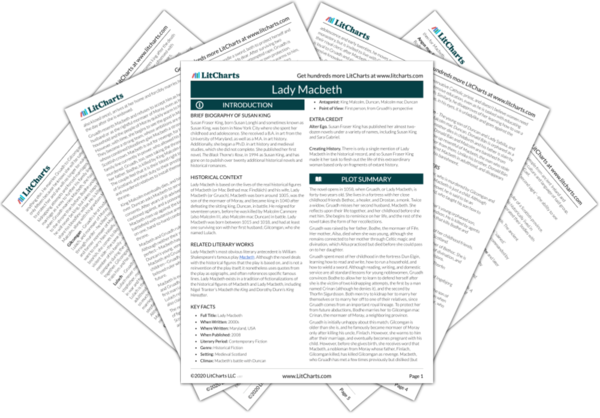For the second time in her life, Gruadh must use physical violence to protect herself. Although later Gruadh will be criticized for learning how to handle a sword formally, which is seen as unwomanly, here, she proves the necessity of being able to defend herself; she knows, even though she is a woman, she will often be in dangerous situations because of her family background and the value of her bloodline.
